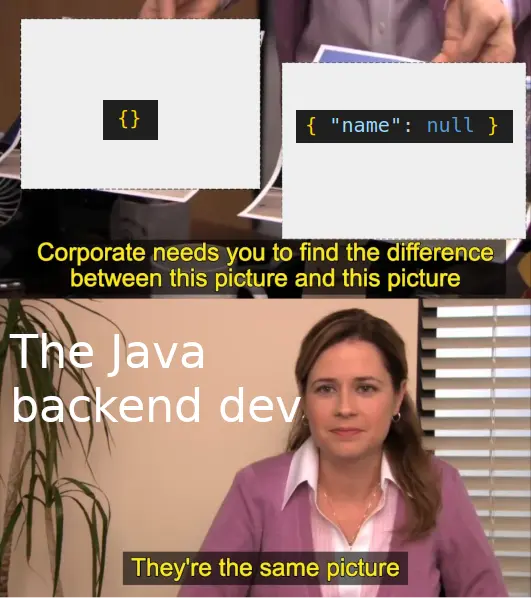this post was submitted on 30 Jun 2024
153 points (93.2% liked)
Programmer Humor
32041 readers
1429 users here now
Post funny things about programming here! (Or just rant about your favourite programming language.)
Rules:
- Posts must be relevant to programming, programmers, or computer science.
- No NSFW content.
- Jokes must be in good taste. No hate speech, bigotry, etc.
founded 5 years ago
MODERATORS
you are viewing a single comment's thread
view the rest of the comments
view the rest of the comments

Imagine you're writing a CRUD API, which is pretty common.
If null attributes aren't included in the payload, and someone does an update (typically a PATCH), how do you know which fields should be nulled out and which should be ignored?
I agree for many cases the two are semantically equivalent, but it's common enough to not have them be equivalent that I'm surprised that it causes arguments
For an API there should always be a version parameter/endpoint, imho.
Edit for further context: Ideally, a parameter.
I wasn't taking about new fields. I was talking about resource partial updates (eg PATCH, or commonly the U in CRUD).
If you just want to update a single field on a resource with 100 fields, rather than GETting the entire resource, updating the single field, and PUTting whole thing back, just do a PATCH with the single field.
Likewise if you're POSTing a resource that has nullable fields, but the default value isn't null, how do you indicate that you want the default value for a given field? Do you have to first query some metadata API? That doesn't seem ideal, when this existing pattern exists
Those are two very fair points - I agree.